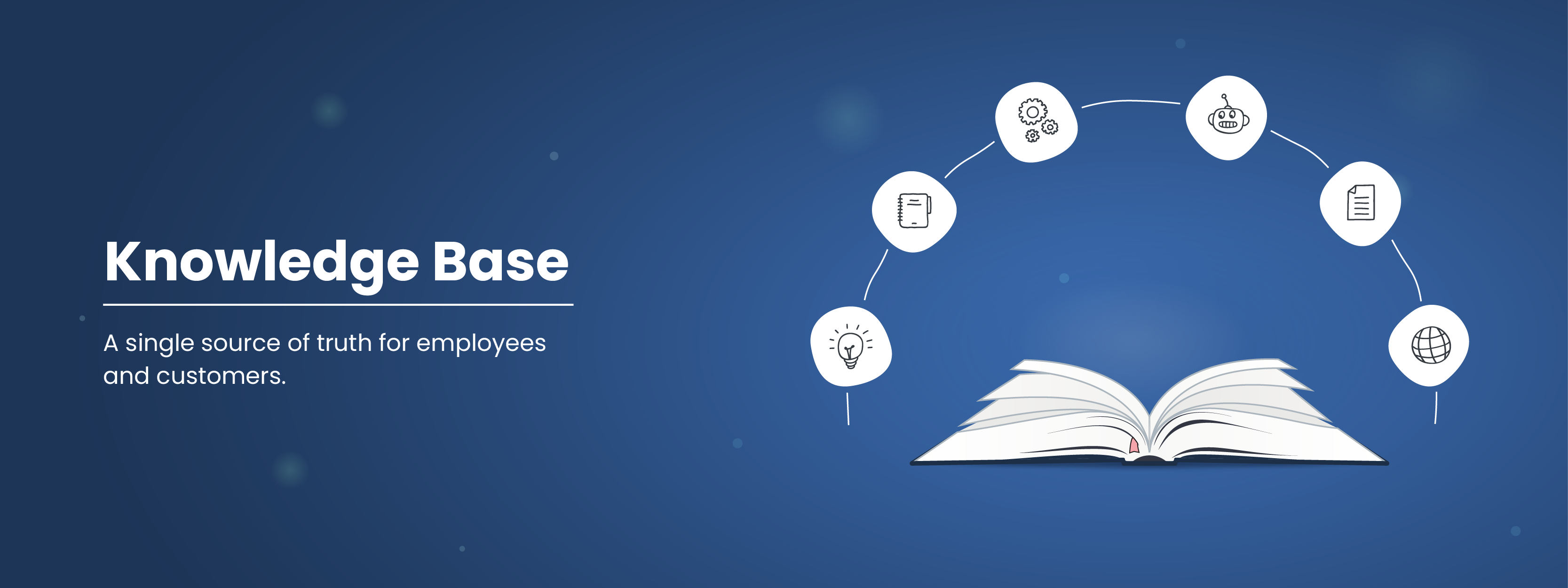A long time ago, knowledge about a particular skill set was a tightly held secret. It was shared with apprentices and students through specific guilds and schools. Knowledge was passed down orally and rarely in written form.
Public libraries were far and few, with limited accessibility. Even though at its height, the great library of Alexandria was known to have held up to 400,000 thousand scrolls of information 1 . We can’t fathom the effort and manpower required to maintain such volumes of information.
With progress in science and technology, knowledge slowly entered the public domain. The invention of the Printing Press helped experts publish numerous books, papers, scientific facts, etc. Then came training institutes and schools that specialized in creating customized training content and programs for businesses. To a large extent, this knowledge remained with these institutions and was rarely ever transferred to an organization.
The advent of software technology and the internet have revolutionized the way information is stored and shared. Today, information is largely digitized where organizations can easily create and access large repositories, commonly referred to as Knowledge Bases.
What is a Knowledge Base?
A Knowledge Base is a repository of information about your organization and the product or service you provide.
Information can:
- Be in the form of Google or Word documents, PDFs, Videos, GIFs, FAQs, etc.,
- Information can be easily retrieved since data is extensively organized and categorized.
- Include content about business communication, technology, products, and services.
- Be utilized by different teams such as Development, HR, Marketing, and Sales.
Even your website can be a part of a Knowledge Base. The possibilities are endless as to what you can include in one.
Thus, a Knowledge Base is essentially the collective knowledge that your organization records about products, business processes, and your customers. It can come from the product itself, from employees, and even from customers.
Why is a Knowledge Base required for an organization?
Knowledge can be scattered across the organization – for different products (or services) with different teams. And the world being a global village today, it can be spread across the world. There is also the point of employees leaving your organization and taking this treasure with them.
Wouldn’t you want to record this information in a single place, so it can be accessed when needed? Imagine what an asset a Knowledge Base can be, and its potential!
This repository helps in two ways, internally – for your employees, and externally – for your customers. Let us see how.
A Knowledge Base for your employees
Are you thinking about why your employees might need a Knowledge Base? There are many reasons why it can be useful for different teams.
- If your business is expanding or is on a hiring spree, would you want to invest in expensive training programs? If you have access to documentation, you can create custom-made training programs. You can use this to help new hires learn the product and assimilate into the organization. You can train your employees quickly on new features.
- Customer support teams will have ready access to this information. They can easily troubleshoot customer issues or guide them to take corrective action.
- HR teams can disburse policies and guidelines, especially with a scattered workforce.
- Other teams, like Sales, Marketing, and Development, can use the platform to publish documentation on approaches, branding, standards, etc.
Having a Knowledge Base means ready access to data. Onboarding new hires is faster. Enforcing policies uniformly becomes easier. On the work front, it helps maintain branding guidelines and cuts down customer service issues and pre-sale queries. Here are interesting tidbits you may want to consider. 47% of corporations that possess a knowledge base saw a positive rise in sales. 45% of companies who took part in the survey say they observed a rise in sales via self-service. At the same time, 54% recorded an upswing in network traffic 3.
And the most important advantage? Your teams will be able to provide enriching experiences to your customers.
A Knowledge Base for your customers
Does a customer’s relationship with you end with a sale?
No, it doesn’t. In fact, a customer will often reach out to you post-sale – with issues about the products or problems with the service, or they may simply be looking for information. A study by Coleman Parkers for Amdocs found that 91% of respondents would use an online knowledge base if it were available and tailored to their needs 2 . A Knowledge Base acts like a self-help center, where customers can look up information instead of reaching out to customer support.
You can use the Knowledge Base to:
- Onboard your new customers with ease.
- Help customers learn and use the product by themselves.
You can continue to build your relationship with a customer long after you have made a sale by delivering quality content consistently. A Knowledge Base aids in customer retention.
In both the above cases, information must be available whenever and wherever people need it, in an easy-to-understand format.
Knowledge Base – the single source of truth
As customers’ demands change to meet business needs, so will applications and products to meet this demand. It is critical that documentation meets this pace of change and that there is a single source of information available for both customers and your employers. So how can this be achieved? Simple, the Knowledge Base!
A Knowledge Base will be the platform for a ‘single source of truth’ – with information on the latest version of the feature or capability.
It consolidates enterprise data material from different sources so your teams – sales, support, marketing, or training- can access the absolute latest information along with your customers. A Knowledge Base helps avoid miscommunication and enhances the all-around customer experience.
Do you use a Knowledge Base in your organization? Do check out Vtiger CRM’s Knowledge Base here.
————————————————————————————————————————————-
References
1 & 3 – https://www.peppybiz.com/blog/knowledge-base-statistics
2 – https://www.socialmediatoday.com/social-business/importance-self-service-customer-support-social-era)



